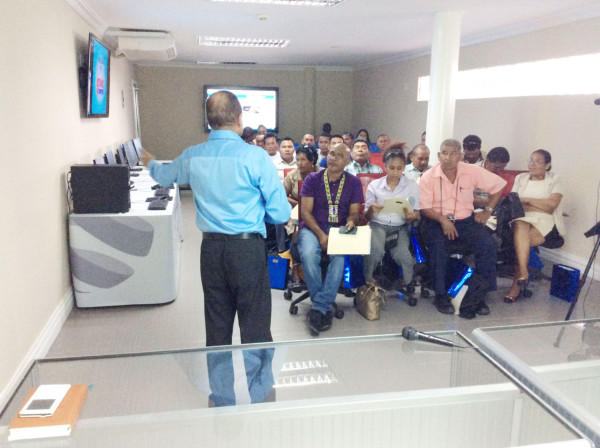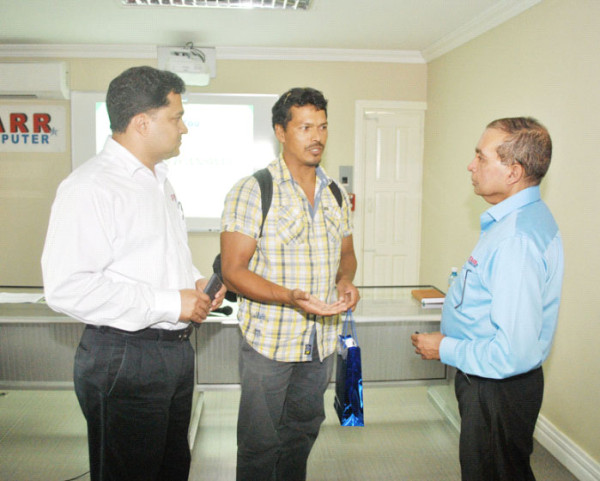Starr Computers has commenced what the company is describing as exploratory discourses with leaders of hinterland communities with a view to determining the role that technology can play in enhancing conventional education and vocational skills as well as fostering entrepreneurial development with a view to enhancing the quality of life in hinterland communities.
Earlier this week, the company’s Chief Executive Officer Michael Mohan along with General Manager Rehman Majeed and other technical staff hosted members of the National Toshaos Council at the Brickdam complex for a one-hour interface around the theme ‘IT Solutions For Empowerment.’


Mohan told Stabroek Business that Starr’s engagement with the village leaders was “a natural extension” of its focus on placing the technology to which the company’s access at the disposal of communities across Guyana despite the particular challenges associated with reaching some of those communities.
Arguably the most critical topic covered during the discourse was the issue of “mobile computing” a theme which Majeed said in his presentation was critical to Amerindian communities “given the lack of infrastructure, particularly reliable power in many interior communities.” Accordingly, Majeed explored with them the prospects for community acquisition of a “computer on a stick,” a device which he said was low cost, small and functioning like a regular desktop computer” and which he said “makes perfect sense for hinterland communities.”
Much of the exchange centred around the prospects for the introduction of Starr Computer’s Smart Lab, a device that enables the powering of up to 100 computer terminals by a single server. Majeed said that the company had decided to make the Amerindian leaders aware of its Smart Lab and its features because of its potential for the creation of Information Technology hubs and the fact that its application would significantly reduce initial costs, technical support, electricity and e-waste.
Perhaps the most immediately relevant area of discussion was the role the limited IT solutions could play in the entrepreneurial advancement of hinterland communities. Majeed told Stabroek Business that what comes to mind immediately is the role that even a modest IT facility can play in the marketing of goods produced in Amerindian communities through the support it can give in the printing of labels and barcodes at the place of manufacturing.
Mohan said that while both sides acknowledged the immediate limitations associated with the reach of internet in hinterland communities the exchange was “very much an initial one” and that continuity would not only depend on decisions that had to be made by the communities and their leaders but would also be determined by other wider developmental decisions that had to do with improving lives in interior communities.









